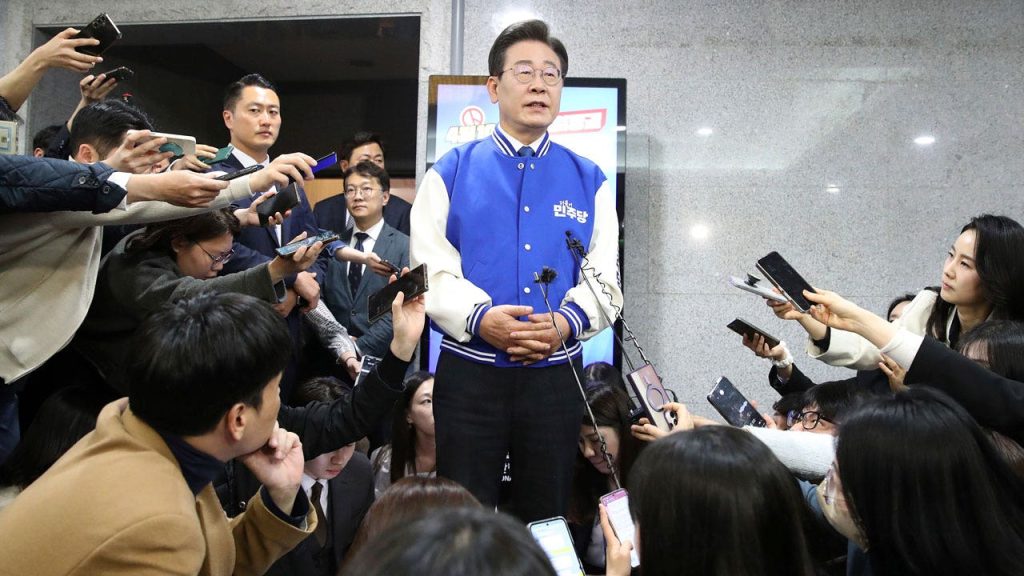South Korea’s liberal opposition parties were projected to win a decisive victory in the parliamentary election, according to initial exit polls. This outcome would make conservative President Yoon Suk Yeol essentially a lame duck for the remaining three years of his presidency. The polls showed the main opposition Democratic Party and its satellite party winning a majority of seats in the 300-member National Assembly, while the ruling People Power Party was expected to secure far fewer seats.
President Yoon, who took office in 2022 for a single term, has faced challenges both domestically and internationally. Despite his efforts to strengthen ties with the U.S. and Japan, Yoon has been grappling with low approval ratings and opposition-controlled parliament that has hindered his major policy initiatives. The election was viewed as a mid-term confidence vote on Yoon, with the potential for the opposition parties to gain enough seats to pass legislation and even impeach the president.
The voter turnout for the election was estimated at 67%, the highest since 1992. As the results came in, the ruling party expressed disappointment while the Democratic Party celebrated the apparent victory. The toxic rhetoric and mudslinging between the conservative and liberal rivals deepened during the campaign, reflecting the ongoing political divisions in South Korea. The political landscape is further complicated by potential presidential bids from figures like Lee Jae-myung, who has been a vocal critic of Yoon’s policies.
Yoon’s presidency has been marked by efforts to increase the number of medical students, despite protests from incumbent doctors. The push to expand the medical workforce has led to strikes and public criticism, adding to the challenges facing the ruling party. As the political deadlock between the ruling and opposition parties continues, questions remain about the future direction of South Korea’s governance. The outcome of the election will have significant implications for Yoon’s ability to implement his agenda and navigate the country’s complex political landscape.
The fierce rivalry and personal attacks between the political parties have underscored the deep divisions within South Korean society. While the election results are not yet finalized, the potential for a significant opposition victory could signal a shift in the country’s political dynamics for the next three years. The public sentiment reflected in the election results will shape the trajectory of South Korea’s governance and influence the broader geopolitical landscape in the region. Regardless of the final outcome, the election will serve as a critical moment for President Yoon and the future of South Korea’s democracy.


